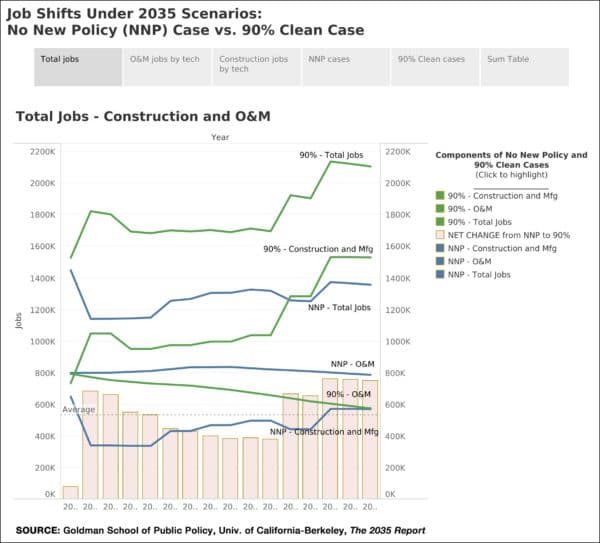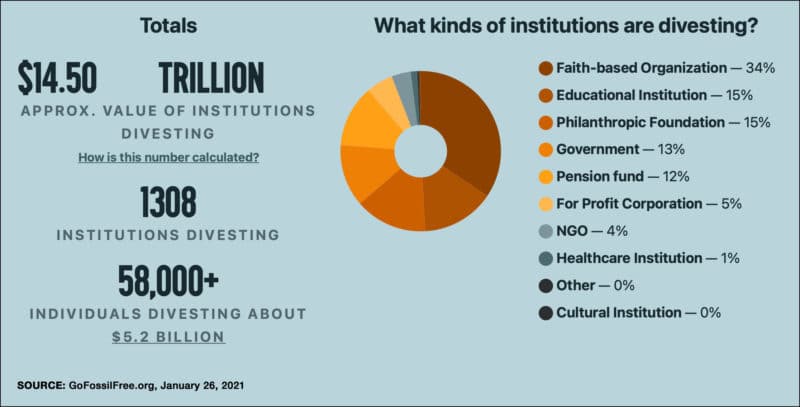
As President Biden seeks to repair a divided nation, market forces and the pandemic economy may be aligned to create opportunity for his climate agenda.
Against the backdrop of a tumultuous presidential transition, the pandemic and its economic fallout, and a severely divided nation, US policy on climate change is due—or more accurately overdue—for a major reset. With a new administration aiming to both unify the country and achieve substantial climate action goals, it will have to make some difficult choices in the months and years to come.
Recommitting to the Paris Climate Accord, as President Joe Biden did on Inauguration Day, is the easy part, as is building a team of strong climate activists and negotiators. Much more challenging will be the balancing of priorities he’ll face. Despite Republican leadership now acknowledging the reality of climate change, it’s unclear how supportive those in Congress will be as Biden seeks to move the nation beyond partisan division. At the same time, he will have to contend with factions within his own party, from progressives aching for substantial action on climate, social justice, and other issues to moderates wary of dramatic change. Biden will need to also contend with the prospect of heated mid-term elections ever present in the minds of both parties as he seeks to make real progress.
But the landscape has changed since then-Vice President Biden left office in 2017. The market for renewable energy technologies has improved and investments in climate technologies have risen significantly. More businesses are taking a public stand on climate change, and more importantly, some are following through with substantive actions. And renewed interest in social justice has revealed possibilities for synergies between two issues – environmental protection and human well-being – that have too often been viewed as separate.
Renewable energy on the upswing
Technological progress is sure to be one major driver of policy, especially as regards renewable sources of energy. Last year Germany generated more electricity from renewables than from fossil fuels for the first time. And in the US, renewable electricity beat out coal for the first time in April 2019, according to the US Energy Information Association. That’s due in large part to a steep drop in coal usage caused by a proliferation of cheap natural gas.
At the same time, renewable electricity generation has been creeping upward as a percentage of total consumption, and getting cheaper per megawatt-hour. According to a 2020 analysis by the Goldman School of Public Policy at the University of California-Berkeley, the US could readily build out renewable energy sources to the point that they would provide 90% of the nation’s need by 2035—without increasing electricity costs to consumers.
Such an energy revolution would not only decrease the nation’s fossil-fuel emissions by as much as 27%, the report authors concluded, but also result in the creation of some half a million clean energy jobs. That corollary benefit dovetails nicely with the sort of change Biden proposed during his campaign, when he pitched a goal of creating millions of new jobs through projects to develop renewable energy, modernize public transit, and retrofit buildings to save energy.
It’s also the sort of economic carrot that might find traction even in a narrowly split Senate, where the outcome of some votes is likely to hinge on middle-of-the-road senators such as Republicans Mitt Romney of Utah or Lisa Murkowski of Alaska, or conservative Democrat Joe Manchin of West Virginia, who is in line to lead the influential Energy and Natural Resources Committee.
Though a longtime supporter of his state’s coal industry, Manchin did co-author a 2019 Washington Post op-ed, with Murkowski, calling for “responsible” climate change action such as investment in new technologies. December’s pandemic stimulus package featured a modest version of that idea, which included tax credits on solar and wind energy. Given the strong need for economic stimulus in the wake of the COVID-19 pandemic, there’s a good chance that the federal government can significantly incentivize green technology developments that also create jobs.
Business is stepping up, slowly
The role of business and investment communities has changed too, as more companies and associations express support for action on climate change. But it can sometimes be hard to separate real commitment to climate action from more reluctant feet-dragging on the issue.
Last fall, the Business Roundtable, an influential organization that includes the CEOs of more than 200 major corporations, issued a report calling for a “comprehensive, coordinated and market-based approach” to reducing emissions. The US Chamber of Commerce, historically a lobby highly averse to federal regulation, issued a similar statement the day before Inauguration Day. A primary element of these position declarations is a carbon tax, which by placing a price on the creation of carbon emissions would incentivize both energy conservation and non-fossil fuel energy.
There are some pretty big caveats, however, to what at first glance might look like a wave of leadership from these organizations. For example, the Business Roundtable’s member businesses have repeatedly contributed almost exclusively to the political party that has for three decades opposed climate science and any action on climate change.
More recently, as reported by Axios, both the US Chamber of Commerce and the American Petroleum Institute (API) announced apparent support for President Biden’s proposal to regulate methane emissions from oil and gas wells. Yet, both groups say their support depends on the US Environmental Protection Agency (EPA) conducting a study to confirm that such methane emissions are harmful to the public. Environmentalists point out that EPA already did such a study in 2016, suggesting that the Chamber and API are simply seeking to delay implementation of the regulations.
On the other hand, some companies and industries are putting their money to work to support their public words. This month the French energy company Total ended its membership in the API, citing differences in climate change policies. The API has been outspoken in its opposition to climate change science and government action; its members have contributed millions of dollars to candidates opposed to climate change. Over the last 20 years, Total has steadily shifted its political contributions to the Democratic Party, which has long supported action on climate change. Total has previously announced it will cut its own carbon emissions, and has also expressed support for such policies as subsidies for electric cars.
The success of businesses like Tesla are driving consumer demand for alternatives to carbon-intensive products. A recent MIT study shows that electric cars, even if they have a higher sticker price than conventional ones, are cheaper to operate in the long run. A tectonic shift from traditional to alternative sources of energy is reflected in ExxonMobil’s stock price, which has dropped by nearly half in the last five years.
This sort of financial pressure is playing a big role as more and more investors pull money away from the fossil-fuel industry. New York State’s giant employee pension fund announced last month that it will divest from oil and gas companies that don’t show how they plan to align their operations with the Paris Accord.
In all, a diverse array of organizations ranging from nonprofits to universities to pension funds and private companies have divested more than $14 trillion in assets from fossil fuel companies since 2014. Last fall the six largest US banks announced their refusal to fund drilling in the Arctic National Wildlife Refuge. And financial services firm Morningstar announced that 2020 saw record levels of buy-in to investment funds focused on sustainability.
Corporate employees are also getting into the act. Employees in the powerful tech industry have been vocal in pressuring their employers to act in more environmentally responsible ways. Together, pressure from consumers, employees, and financial interests may wield the sort of collective power that will be needed to get business interests to comply with some of the tougher aspects of Biden’s climate policy, such as zeroing out emissions from power plants by 2035, as well as for the creation of a legal mechanism to enforce emissions limits.
Social justice considerations
Climate change is only one of the urgent issues facing the new administration, which also has to respond to a groundswell of calls for social justice measures even as Biden has pledged to unify the nation. These competing pressures complicate policy choices. As even a simple energy conservation plan in Chattanooga illustrates, considerations of income inequality and social justice sometimes limit the reach of environmental action. In order to serve multiple priorities, sometimes policymakers and their communities have to settle for achieving less than the optimal environmental goal.
Activists inspired by the Green New Deal will be looking to link those sometimes complementary, sometimes competing goals. As reported by Fast Company, volunteers for the Sunrise Movement—an influential youth-based climate action network—sent more than a million texts and made more than a million calls to Georgia voters during the January 5 runoff election, thereby helping to flip the Senate to Democratic control. That election success may point the way to a new spirit of collaboration between what have traditionally been viewed as separate forms of activism focused on climate change and racial justice issues. As Stacey Abrams, the Georgia activist widely credited with increasing African-American turnout in both the presidential and the Senate runoff elections, wrote in a commentary in TIME last summer, there’s a tight link between taking climate action and ensuring that underprivileged communities have a voice in the form of their right to vote.
Biden’s appointment of a high-level team all focused on climate change suggests that there is the promise of more integrated action across multiple federal agencies, as well as a new ability to cajole or cudgel states and other governmental units into doing more. His campaign plan called for setting up coalitions, for example, aimed at developing regional climate change resilience plans. Those may be able to distribute both regulation and innovation across a wide array of governmental, university, business, and community players in a way that is responsive to regional needs.
Biden has nominated a Native American Secretary of Interior, Congresswoman Deb Haaland (D-New Mexico), and an African-American EPA administrator, Michael Regan, who has previously emphasized environmental justice concerns in his position leading the North Carolina Department of Environmental Quality. These nominations suggest an increased focus on the challenges faced by low-income and minority communities, many of which are on the front lines of both industrial pollution and climate change impacts.
Action on climate change across agencies and multiple jurisdictions, at varied scales, is badly needed. After the US under President Trump walked away from the Paris Accord, the governors of 24 states and Puerto Rico announced they would stick to the international agreement, with a goal of cutting emissions by over a quarter (from 2010 levels) by 2025. However, a recent analysis by the Environmental Defense Fund shows they will collectively achieve only about an 11% reduction—and those are the states whose governors chose to be the most proactive.
At the broader federal level, though, the byword is likely to be compromise. That’s simple political reality. Biden may be able to notch some wins for certain progressive policies with the help of Democratic moderates, or by leveraging fractures in the GOP. What many are hoping, though, is that the increasingly clear connections between climate change, racism, and other social justice issues might sufficiently shift the political playing field to make change happen more quickly than seems possible now.
Problem Addressed: Climate Change
Written by Peter Friederici
Published on January 26, 2021
Feature image: Biden-Harris campaign video, Plan for Climate Change and Environmental Justice
Sources
Agora Energiewende, “Corona year 2020: record declines in carbon emissions and coal power,” Jan 5, 2021, https://www.agora-energiewende.de/en/press/press-releases/corona-year-2020-record-declines-in-carbon-emissions-and-coal-power/, accessed Jan 25, 2021
US Energy Information Administration, “U.S. electricity generation from renewables surpassed coal in April”, Jun 26, 2019, https://www.eia.gov/todayinenergy/detail.php?id=39992, accessed Jan 22, 2021
The Goldman School of Public Policy, The 2035 Report, University of California-Berkeley, Jun 9, 2021, https://www.2035report.com, accessed Jan 22, 2021
Business Roundtable, “Addressing Climate Change”, Sep 16, 2020, https://www.businessroundtable.org/climate, accessed Jan 22, 2021
Jennifer A. Dlouhy, “In Switch, Chamber of Commerce Backs Climate Action, Possible Carbon Tax”, Bloomberg, Jan 19, 2021, https://www.msn.com/en-us/money/markets/in-switch-chamber-of-commerce-backs-climate-action-possible-carbon-tax/ar-BB1cTGRT, accessed Jan 22, 202
Open Secrets, Business Roundtable profile, https://www.opensecrets.org/orgs/business-roundtable/totals?id=D000032202, accessed Jan 22, 2021
Amy Harder, “Big business backs key climate change regulations”, Axios, Jan 21, 2021, https://www.axios.com/business-back-key-climate-change-regulations-b55ccce6-1595-415b-975e-7c57555745a0.html, accessed Jan 22, 2021
Ron Bousso, “France’s Total quits top U.S. oil lobby in climate split”, Reuters, Jan 15, 2021, https://www.reuters.com/article/total-api/update-3-total-quits-top-us-oil-lobby-over-climate-policies-idUSL1N2JQ13D, accessed Jan 22, 2021
Sandra Laville, “Top oil firms spending millions lobbying to block climate change policies, says report”, The Guardian, Mar 21, 2019, https://www.theguardian.com/business/2019/mar/22/top-oil-firms-spending-millions-lobbying-to-block-climate-change-policies-says-report, accessed Jan 22, 2021
Open Secrets, Total SE, https://www.opensecrets.org/orgs/total-sa/totals?id=D000064283, accessed Jan 26, 2021
Veronica Penny, “Electric Cars Are Better for the Planet – and Often Your Budget, Too”, New York Times, Jan 15, 2021, https://www.nytimes.com/interactive/2021/01/15/climate/electric-car-cost.html, accessed Jan 23, 2021
Karin Kirk, “Investors flee Big Oil as portfolios get drilled”, Yale Climate Connections, Jan 14, 2021, https://yaleclimateconnections.org/2021/01/investors-flee-big-oil-as-portfolios-get-drilled/, accessed Jan 23, 2021
Office of the New York State Comptroller, “New York State Pension Fund Sets 2040 Net Zero Carbon Emissions Target”, Dec 9, 2020, https://www.osc.state.ny.us/press/releases/2020/12/new-york-state-pension-fund-sets-2040-net-zero-carbon-emissions-target, accessed Jan 22, 2021
Go Fossil Free, “Fossil Free: Divestment”, https://gofossilfree.org/divestment/commitments/, accessed Jan 22, 2021
Rachel Frazin, “Bank of America pledges no financing for Arctic oil”, The Hill, Dec 1 ,2020, https://thehill.com/policy/energy-environment/528146-bank-of-america-pledges-no-financing-for-arctic-oil, accessed Jan 22, 2021
Pippa Stevens, “Sustainability-focused investing had a record year — here are some of the most popular funds”, CNBC, Dec 30, 2020, https://www.cnbc.com/2020/12/31/sustainability-focused-investing-had-a-record-year-here-are-some-of-the-most-popular-funds.html, accessed Jan 22, 2021
Louise, Matsakis, “Thousands of Tech Workers Join Global Climate Change Strike”, WIRED, Sep 28, 2019, https://www.wired.com/story/tech-workers-global-climate-change-strike/, accessed Jan 23, 2021
Adele Peters, “Meet the Gen Z activists who helped win the Georgia Senate seats”, Fast Company, Jan 8, 2021, https://www.fastcompany.com/90592099/meet-the-gen-z-activists-who-helped-win-the-georgia-senate-seats, accessed Jan 22, 2021
Stacey Abrams, “Don’t Try to Change the Minds of Climate-Denying Politicians. Vote Them Out,” TIME, Jul 9, 2020, https://time.com/5864694/stacey-abrams-climate-change-voting/, accessed Jan 25, 2021
Joe Biden Campaign, “The Biden Plan for a Clean Energy Revolution and Environmental Justice”, https://joebiden.com/climate-plan/, accessed Jan 25, 2021
US Climate Alliance, “States United for Climate Action”, https://www.usclimatealliance.org, accessed Jan 22, 2021
Environmental Defense Fund, “U.S. States with Climate Commitments Off Track to Reach Science-based Emissions Goals”, Dec 8, 2020, https://www.edf.org/media/report-us-states-climate-commitments-track-reach-science-based-emissions-goals, accessed Jan 22, 2021
Sarah Kaplan, “Climate change is also a racial justice problem”, Washington Post, Jun 29, 2020, https://www.washingtonpost.com/climate-solutions/2020/06/29/climate-change-racism/, accessed Jan 22, 2021
Have a Suggestion?
Know a leader? Progress story? Cool tool? Want us to cover a new problem?



